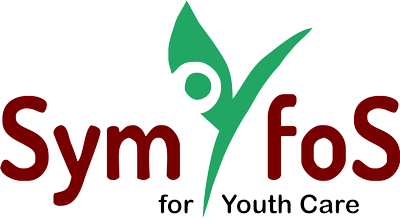About SymfoS
for Youth Care
“SymfoS for Youth Care” (SFYC) develops an innovative careers counselling method based on the approach of Symbol Work. The implementation of this method in the youth welfare system could significantly improve the integration chances of disadvantaged young people (NEETs) in Europe. Due to lack of integration in many areas of life, these young people are increasingly excluded from social participation.
With the methodical approach of Symbol Work (developed by Wilfried Schneider) as an innovative counselling instrument, the project will enable practitioners in the field of youth welfare to effectively support disadvantaged young people.
The innovative aspects are, on the one hand, the transfer of the previous method from vocational guidance to the youth welfare system in each partner country and on the other hand, the extension of the SFYC educational approach with web courses, which also can be included in introductory courses at universities and other further education and training courses for the youth work and social care sectors.
In youth welfare services, working with symbols offers young people an additional universal language. In short, symbolic work means getting a person to search for themselves. Symbols are helpful in situations that are difficult or impossible to describe using other means of communication.
Target groups
PRIMARY TARGET GROUPS
Youth welfare workers or psychologists and social workers who work with the young people listed above (e.g. social services of youth welfare offices, youth welfare services)
Decision makers in youth welfare, VET providers and universities in the field of social welfare
INDIRECT TARGET GROUPS
Disadvantaged young people (15-25 years) with problems of integration, which are not reached by existing methods of youth welfare (young people with multiple problems, NEETs)
Educational policy makers responsible for validating courses and qualifications






